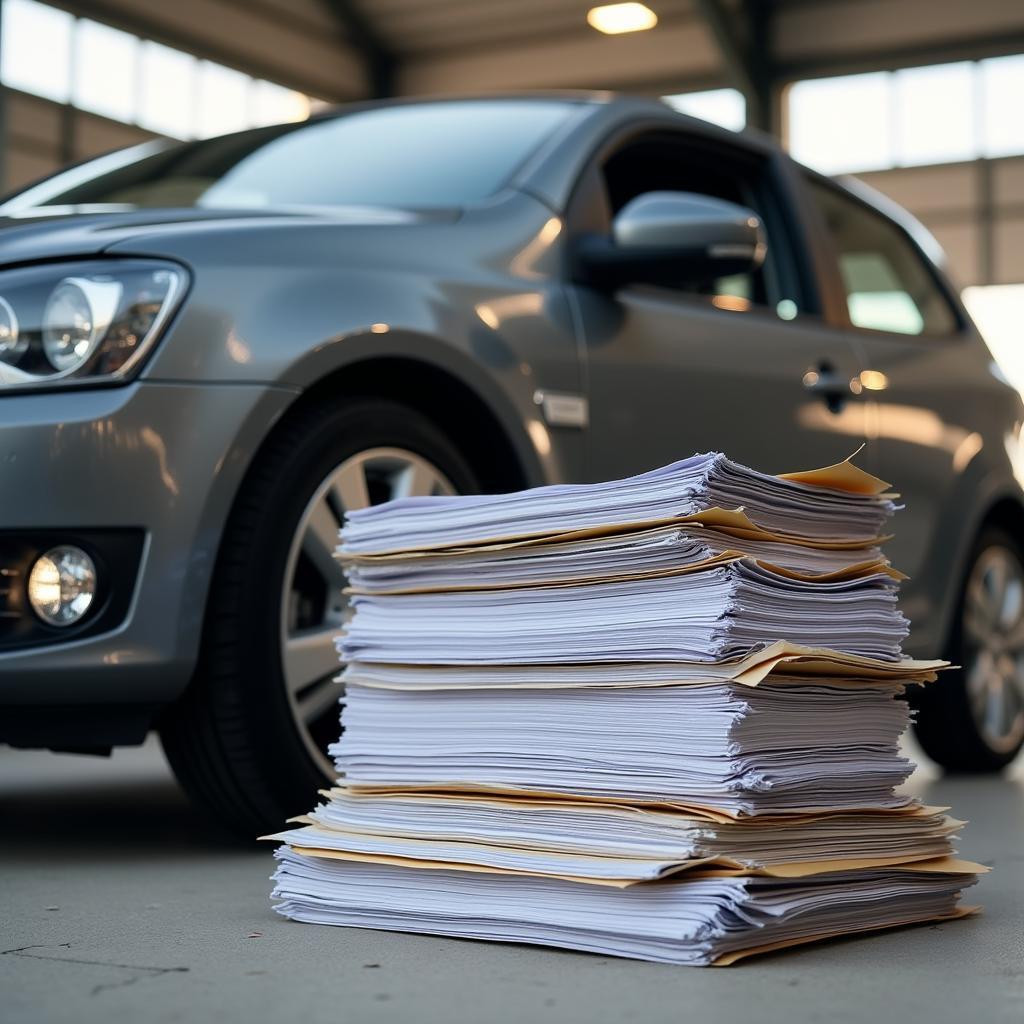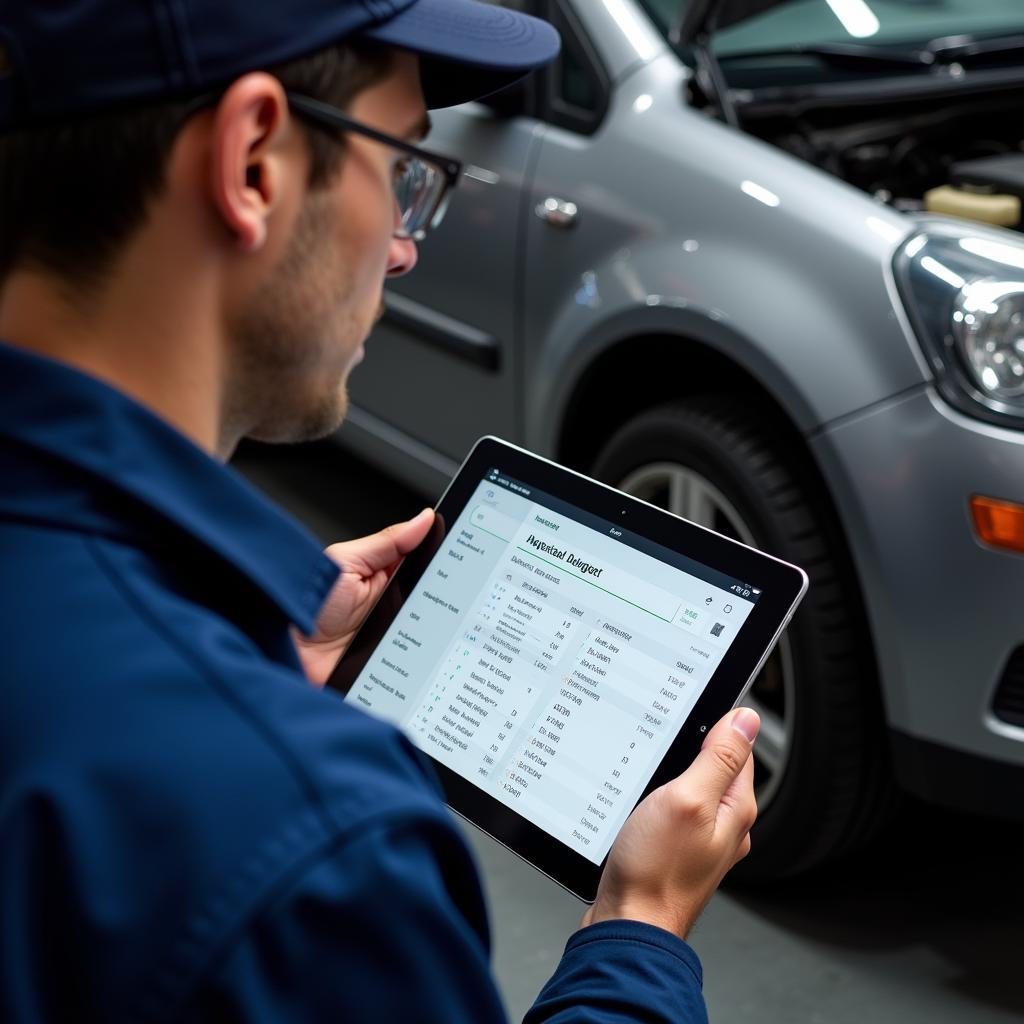Keeping accurate maintenance records for your car is crucial, not only for resale value but also for ensuring the longevity and reliability of your vehicle. This practice often gets overlooked, but it can save you headaches and money in the long run. Whether you’re a DIY mechanic or rely on professional services, organized records are essential.
Why Maintenance Records for My Car Matter
Keeping meticulous maintenance records for your car isn’t just about being organized; it’s a smart financial decision and a testament to responsible vehicle ownership. Detailed records provide a clear history of your car’s health, which is invaluable when it comes time to sell or trade it in. Potential buyers are more likely to trust and pay a premium for a vehicle with documented proof of regular maintenance.
How Maintenance Records Boost Resale Value
Think of your maintenance records as a resume for your car. A well-maintained vehicle with comprehensive service history speaks volumes about its condition and reliability. This transparency can significantly increase your car’s resale value. A complete record of oil changes, tire rotations, brake replacements, and other crucial services provides potential buyers with peace of mind and justifies a higher asking price.
 Car Maintenance Records Boosting Resale Value
Car Maintenance Records Boosting Resale Value
Ensuring Warranty Coverage
Maintaining accurate maintenance records for my car is often a requirement to maintain valid warranty coverage. If a warranty issue arises, manufacturers may request proof of scheduled maintenance to honor the warranty terms. Without proper documentation, you could end up paying out of pocket for repairs that should be covered.
Simplifying Diagnostic Troubleshooting
When your car experiences a problem, having detailed maintenance records can significantly speed up the diagnostic process. Mechanics can quickly identify potential issues based on past service history, saving you time and money on unnecessary diagnostic tests. Imagine trying to piece together a puzzle without all the pieces – that’s what diagnosing a car without proper records can feel like.
 Mechanic Using Maintenance Records for Diagnostics
Mechanic Using Maintenance Records for Diagnostics
Creating and Maintaining Your Car’s Maintenance Log
Building a comprehensive maintenance log doesn’t have to be complicated. Whether you choose a physical binder, a spreadsheet, or a dedicated app, consistency is key.
What to Include in Your Records
Your car maintenance log should include:
- Date of Service: This is crucial for tracking service intervals and identifying potential patterns.
- Type of Service: Be specific – “oil change,” “tire rotation,” “brake pad replacement,” etc.
- Mileage at Service: Recording the mileage helps monitor service intervals and predict future maintenance needs.
- Cost of Service: Keeping track of expenses provides valuable insight into your car’s overall maintenance costs.
- Service Provider: Note the name and location of the garage or service center.
- Parts Replaced: List any parts replaced, including part numbers if available.
- Any Notes or Observations: This could include anything unusual noticed during the service or any recommendations from the mechanic.
Digital vs. Physical Records: Which is Right for You?
Choosing between digital and physical records is a matter of personal preference. Digital options, like dedicated apps or spreadsheets, offer convenience and searchability. Physical records, like a binder, provide a tangible backup. Some car owners find a combination of both methods to be the most effective. Which one suits your organizational style best?
FAQs About Car Maintenance Records
Here are some frequently asked questions about keeping maintenance records for your car:
- What if I’ve lost my car’s maintenance records? Contact previous service providers. They may have records on file.
- Is it worth keeping records for older cars? Absolutely! Even for older vehicles, records can help diagnose issues and prove regular maintenance.
- Can I create maintenance records retroactively? While not ideal, you can start documenting from today onwards and try to gather past records as best as possible.
- How often should I update my records? After every service, no matter how minor.
- Are digital records acceptable for warranty claims? Generally, yes. However, it’s always best to confirm with the manufacturer.
- Can I deduct car maintenance expenses on my taxes? In some cases, yes. Consult a tax professional for specific guidance.
- What’s the best way to organize my records? Chronological order is usually the most effective.
Keeping Up with Maintenance: The Key to a Healthy Car
Maintenance records for your car are more than just paperwork; they are a testament to your commitment to responsible vehicle ownership. They not only enhance your car’s resale value but also contribute to its overall longevity and reliability. By meticulously documenting your car’s service history, you’re investing in its future and saving yourself potential headaches down the road.
Need help with your car maintenance? Connect with the experts at AutoTipPro! Call us at +1 (641) 206-8880 or visit our office at 500 N St Mary’s St, San Antonio, TX 78205, United States.





Leave a Reply